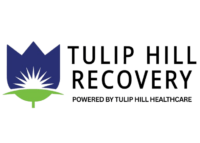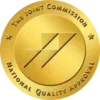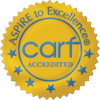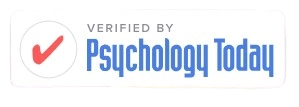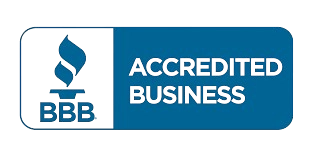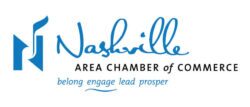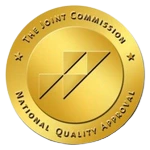Drug and Alcohol Rehab near Morristown, TN
Nestled between the Smoky Mountains and the hum of local industry, Morristown is a hardworking town where families have deep roots and people look out for one another. With its blend of manufacturing jobs, small businesses, and a growing population, it’s the kind of place where everyone knows someone. This strong sense of community and resilience is something to be proud of, and it can make asking for help a sign of strength rather than a challenge.
Addiction here isn’t always dramatic or obvious. Sometimes, it looks like a bottle hidden in the kitchen cabinet, pills taken just to get through the day, or the quiet escalation of habits that once felt harmless.
In a town built on pride and resilience, admitting you’re struggling can feel like failure—even when it’s anything but.
Many people in Morristown delay treatment because they’re unsure what help even looks like. They worry about being judged or feel like they aren’t “bad enough” to need rehab, but addiction doesn’t have to reach a crisis point before you deserve care.
Tulip Hill Recovery in Murfreesboro offers an alternative: confidential, compassionate treatment in a setting away from local pressure and familiar eyes.
Tulip Hill Recovery: A Trusted Drug Rehab near Morristown, TN
Tulip Hill Recovery, located a few hours away in Murfreesboro, exists to fill in the gaps that smaller communities like Morristown often can’t cover.
It’s not just another rehab facility—it’s a place built for people facing complex struggles who need more than a short-term fix.
Our comprehensive program includes medical support, daily therapy, structured programming, and holistic options like mindfulness and nutrition- all under one roof. We also provide aftercare services to ensure sustained recovery.
Some people need detox and medical care, others need deep trauma work, and many need both. Tulip Hill offers a range of services in one place: medical support, daily therapy, structured programming, and holistic options like mindfulness and nutrition—all under one roof. That kind of wraparound care is hard to come by in most local settings.
The team at Tulip Hill works with people battling alcohol misuse, opioid dependency (including fentanyl and painkillers), stimulant addiction (like Adderall or meth), and benzodiazepine misuse. They also treat co-occurring mental health conditions, including anxiety, depression, and PTSD.
For veterans and trauma survivors, the program includes trauma-informed care that respects military experience, chronic stress, and complex grief.
Yes, Murfreesboro is a couple of hours from Morristown, but sometimes, that distance can make all the difference.
The Impact of Substance Abuse in Morristown & Hamblen County
In Hamblen County, the impact of substance use disorders is a growing concern, mirroring broader trends across Tennessee.
While specific county-level data is limited, statewide figures provide insight into many of the challenges faced by communities like Morristown.
In 2022, Tennessee reported 3,826 drug overdose deaths, with opioids involved in 3,073 of these cases.
The rise of fentanyl—a synthetic opioid significantly more potent than morphine—has been a major contributor to these fatalities.
Alcohol misuse remains a persistent issue, leading to health complications and contributing to accidents and injuries.
Additionally, the misuse of benzodiazepines and stimulants, particularly among teenagers and working adults, is on the rise.
These substances are often sought for their sedative or performance-enhancing effects but carry a high risk of dependency and adverse health outcomes.
Despite the evident need, Morristown lacks comprehensive mental health and addiction treatment services.
This gap often forces residents to seek care outside their immediate community.
Access to full-spectrum treatment—including detoxification, counseling, and aftercare—is crucial for effective recovery. Expanding these services is imperative to address the multifaceted challenges posed by substance use disorders in Hamblen County.
What We Treat at Tulip Hill Recovery
At Tulip Hill Recovery, we specialize in treating a wide range of substance disorders and co-occurring conditions.
Whether someone is struggling with one substance or several, or dealing with the added challenges of trauma, depression, or anxiety, our experienced team provides personalized care that addresses the full picture.
At Tulip Hill Recovery, we’re here to help individuals and families heal, step by step.
Conditions We Treat:
- Alcohol Use Disorder
Alcohol dependence can lead to serious physical and psychological health complications, including liver damage, cognitive impairment, and emotional instability.
At Tulip Hill, medically supervised detox helps individuals safely withdraw from alcohol while clinical therapy and relapse prevention strategies ensure long-term sobriety.
- Opioid Addiction
We treat addiction to heroin, fentanyl, and prescription opioids such as oxycodone and hydrocodone.
Treatment includes safe detox coordination, trauma-informed therapy, and relapse prevention, with medication-assisted treatment (MAT) available when clinically appropriate.
(Heroin, Fentanyl, Painkillers) - Methamphetamine Addiction
Stimulant addiction affects energy levels, mental health, and impulse control. We provide behavioral therapies like Cognitive Behavioral Therapy (CBT) to help individuals manage cravings and rebuild healthy habits.
These substances can create serious long-term effects on brain function, mood, and overall health. Our program helps clients stabilize, regulate emotions, and rebuild mental clarity through structured therapy and holistic support.
- Benzodiazepine Addiction
These drugs are commonly prescribed for anxiety but are highly addictive. Our program helps clients safely taper off benzos with medical supervision while developing alternative coping strategies.
Benzodiazepine withdrawal can be dangerous without proper care, which is why we offer carefully coordinated treatment to help clients taper safely while learning how to manage anxiety or panic in healthier ways.
- Polysubstance Use
Many individuals we work with don’t just struggle with one substance—they use multiple, often to balance or mask the effects of another. Polysubstance use is complex and requires an integrated treatment approach.
We assess each client’s unique combination of substances and tailor a recovery plan to support detox, stabilization, and long-term healing.
- Dual Diagnosis and Co-Occurring Mental Health Conditions
Addiction and mental health go hand in hand for many people.
At Tulip Hill Recovery, we specialize in dual diagnosis treatment for clients who also struggle with conditions such as:
- Depression
- Anxiety disorders
- Post-traumatic stress disorder (PTSD)
- Bipolar disorder
- Panic disorder
Our team of licensed therapists and medical professionals works together to treat the addiction and the underlying mental health conditions, ensuring each client receives complete and compassionate care.
A Holistic Approach to Recovery
Beyond traditional treatment methods, our programs integrate holistic therapies, such as nutrition counseling, meditation, and mindfulness, to promote balanced emotional responses and physical well-being.
These approaches support learning to reduce stress, develop resilience, and maintain sobriety for a long time.
For those in Morristown seeking effective addiction treatment, our center provides a structured, supportive path to recovery by combining medical care, therapy, and holistic wellness for sustained healing and relapse prevention.
- Trauma-Informed Care: Many of our clients have gone through trauma that fuels or worsens their substance use. We provide a safe, supportive environment that honors each client’s past while helping them move forward with new tools for healing.
- Small Client-to-Staff Ratio: With intentionally limited enrollment, we ensure every client receives personalized attention and one-on-one support. This allows us to adjust treatment plans in real time based on progress, needs, and goals.
- Individualized Treatment: No two people experience addiction in the same way. That’s why we take time to understand the full picture—substance use history, mental health, family dynamics, and lifestyle—so we can tailor treatment to each person.
Levels of Care for Morristown, TN Residents
In Morristown, there are some important starting points for people struggling with addiction—but what’s missing is a full continuum of care.
At Tulip Hill Recovery, we offer a full continuum of care to support every stage of the recovery process.
Whether someone is just beginning their journey or transitioning back into daily life, our structured programs provide the flexibility and clinical depth needed for lasting sobriety.
As a nearby option, if you’re seeking drug rehab in Morristown, TN, we meet each client where they are and guide them forward with compassion and evidence-based care.

Drug Detox near Morristown, TN
Detox is often the first step in recovery, but it can also be one of the most physically and emotionally challenging parts of the process. At Tulip Hill, our medically supervised detox program is designed to help with withdrawal symptoms safely and provide the clinical support necessary for stabilization.
What to Expect in Detox:
- 24/7 medical supervision to monitor withdrawal symptoms and ensure safety.
- Medication-assisted treatment (MAT), when appropriate, to reduce cravings and ease discomfort.
- Emotional and psychological support, including access to therapy to help individuals process the detox experience.
- A smooth transition into PHP or IOP ensures that detox isn’t just a short-term solution but the beginning of a much more comprehensive recovery plan.

Partial Hospitalization Program (PHP) near Morristown, TN
Our PHP is an intensive program designed for anyone who may need structured daily treatment without a residential stay.
- Treatment runs 5 days per week, 6+ hours per day.
- Individual therapy and group therapy to address addiction and co-occurring mental health concerns.
- Holistic care, including mindfulness, yoga, and exercise-based therapies.
- Medical and psychiatric oversight supporting recovery and any necessary medication adjustments.

Intensive Outpatient Program (IOP) near Morristown, TN
At Tulip Hill Recovery, our Intensive Outpatient Program (IOP) in Murfreesboro is designed to bridge the gap between inpatient treatment and full independence.
IOP provides the structure and accountability necessary for early recovery, while still giving you the flexibility to live at home or in a sober living environment, work, attend school, and rebuild your life outside of treatment.
For those transitioning from PHP or who need flexibility while maintaining treatment, IOP provides structured care with more independence.
- 3-5 sessions per week, allowing for work, school, or family commitments.
- Focus on relapse prevention, emotional regulation, and learning to build and use long-term coping strategies.
- Ongoing support from clinicians and peers ensures continued growth in recovery.

Addiction Treatment Aftercare near Morristown, TN
An aftercare rehab program is a follow-up plan that helps you stay on track after completing formal addiction treatment for a substance use disorder and any co-occurring disorders.
It’s not just a final step—it’s a continuation of care that helps you stay grounded and supported in early recovery.
With our addiction aftercare programs, paired with our proven treatment methods, you gain practical tools and ongoing check-ins that help you stay strong and avoid relapse.

Dual Diagnosis Treatment near Morristown, TN
As a leading dual diagnosis treatment center in Tennessee, we specialize in integrated care that treats the whole person, not just the symptoms.
Whether you’re dealing with depression and alcohol use, PTSD and benzodiazepine dependence, or another combination, we’re here to support you.
Our approach to dual diagnosis treatment is grounded in compassion, science, and personal experience.
We provide a safe space to uncover what’s really driving addiction, and we help our clients build the tools they need to recover from both.
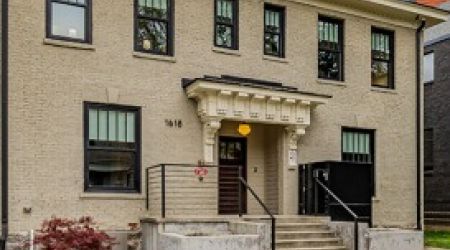
Sober Living & Transitional Housing near Morristown, TN
Our philosophy is that recovery doesn’t end when treatment does. Many people benefit from a structured, supportive environment after rehab before fully reintegrating into daily life.
How Tulip Hill Supports Sober Living:
- We partner with reputable sober living homes to provide safe, substance-free environments for those leaving PHP or IOP.
- Routine and accountability help individuals establish healthy habits and reinforce recovery skills.
- Access to continued outpatient treatment and alumni support, ensuring long-term stability.
Veteran-focused Rehab Programs
Veterans and trauma survivors also have limited access to specialized support. While some general resources exist, trauma-informed care and veteran-specific programming are hard to come by locally.
At Tulip Hill Recovery, we understand that effective drug and alcohol rehab for veterans requires more than standard treatment.
Our veteran-focused programs are trauma-informed, dual-diagnosis capable, and designed to meet the real needs of those who’ve served.
Located near Nashville in Murfreesboro, TN, we work with veterans from across the state, including areas near Fort Campbell, Berry Field Air National Guard Base, and Arnold Air Force Base.
Related Blog Resources
At Tulip Hill Recovery, we believe that education is a powerful tool in recovery. To help you better understand the effects of addiction and the path to healing, we’ve created several in-depth resources you can explore:
Therapies Used in Drug & Alcohol Rehab near Morristown, TN
At Tulip Hill Recovery, our treatment philosophy goes beyond simply helping clients stop using drugs or alcohol—we focus on equipping each person with the tools, insight, and support they need to build a meaningful life in recovery.
That’s why we combine evidence-based therapies with holistic, person-centered practices to treat the whole individual: mind, body, and spirit.
As one of the leading drug and alcohol rehab centers near Brentwood, TN, and a trusted resource for individuals exploring drug treatment centers in Brentwood, TN, we offer a wide range of modalities to meet each client’s needs and preferences.
- Cognitive Behavioral Therapy (CBT), Dialectical Behavior Therapy (DBT), and EMDR
These three therapeutic models form the foundation of our clinical work:
- CBT helps clients identify and shift unhealthy thought patterns and behaviors that fuel substance use.
- DBT supports emotional regulation, distress tolerance, and healthier relationships—especially for those with co-occurring mental health challenges.
- EMDR (Eye Movement Desensitization and Reprocessing) is a powerful trauma therapy that allows clients to safely reprocess painful experiences, often at the root of their addiction.
Together, these therapies help clients gain control over their emotions, break destructive cycles, and create space for healing and growth.
- Family Therapy and Codependency Recovery
Addiction doesn’t just affect the person using—it deeply impacts the people around them.
We offer family therapy to help rebuild trust, improve communication, and support the healing of the family unit.
We also provide specific guidance for codependency recovery, giving loved ones tools to set healthy boundaries and move forward with clarity and compassion.
- Experiential Therapies: Art, Movement, and Mindfulness
Traditional talk therapy is effective, but healing also happens through expression, creativity, and physical connection. That’s why we integrate experiential therapies such as:
- Art therapy for emotional release and self-discovery
- Movement and somatic practices to reconnect with the body and release tension
- Mindfulness and meditation to reduce anxiety and foster internal peace
These approaches help clients explore new ways to cope, self-reflect, and find joy in recovery.
- Medication-Assisted Treatment (MAT)
For some clients, Medication-Assisted Treatment plays a key role in stabilizing early recovery, especially for opioid and alcohol use disorders.
We offer MAT when clinically appropriate, using FDA-approved medications like Suboxone, Vivitrol, or buprenorphine as part of a larger treatment plan with therapy, accountability, and support.
MAT is never a one-size-fits-all solution. At Tulip Hill Recovery, we evaluate each client’s needs to ensure that medications are used safely, ethically, and with long-term healing in mind.
- Support Group Connections in Brentwood, TN
Staying connected is one of the most important aspects of lasting recovery. We encourage clients to participate in local support groups and peer-led programs, including:
- Alcoholics Anonymous (AA)
- Narcotics Anonymous (NA)
- Celebrate Recovery, a Christ-centered 12-step group with a strong presence in Clarksville
- Recovery Dharma, which combines mindfulness and Buddhist principles with addiction recovery
At Tulip Hill Recovery, we help you establish ongoing support so you’re never walking this path alone.
Local Addiction Recovery Resources
Morristown offers several local resources to support individuals and families affected by addiction:
Hamblen County Health Department:
Located at 331 West Main Street, this department provides harm reduction services, including free Narcan (naloxone) and fentanyl test strips.
They also offer immunizations, communicable disease services, and educational programs.
Tennessee Department of Mental Health and Substance Abuse Services (TDMHSAS)
This state agency offers prevention programs, treatment referrals, and recovery support. Regional outreach workers can also connect individuals with appropriate services.
Nonprofits and Faith-Based Organizations
Local entities such as First Presbyterian Church provide financial support for agencies that address homelessness, domestic violence, hunger, and crisis intervention.
They also organize community initiatives like summits on the opioid crisis.
School-Based Prevention Programs
Hamblen County Schools implement Coordinated School Health programs, focusing on mental health screenings and preventive education to support student well-being.
- Helplines:
- Tennessee REDLINE: A 24/7 resource for substance misuse treatment referrals. Call or text 800-889-9789 for confidential assistance.
- SAMHSA National Helpline: Provides confidential treatment referrals and information for individuals and families facing mental and/or substance use disorders.
- Tennessee Statewide Crisis Line: For immediate mental health crises, call 855-274-7471 or text “TN” to 741741 to connect with a trained counselor.
While these resources offer valuable support, they often serve as initial points of contact rather than comprehensive treatment solutions.
Individuals seeking full-spectrum care, including detoxification, therapy, and aftercare planning, may need to explore options beyond Morristown to access the level of support needed for sustained recovery.
Why People from Morristown Choose Our Drug and Alcohol Rehab
Sometimes, healing starts with space.
When the same streets surround you, the same grocery stores, the same people who knew you “before”—it’s easy to stay stuck in the same patterns.
That old bar you used to go to.
The pharmacy that filled your first prescription.
Even well-meaning friends can make it hard to break away when they still see you as who you were, not who you’re trying to become.
Getting treatment outside of Morristown doesn’t mean turning your back on your life. It means giving yourself room to breathe, think clearly, and build new habits without the pressure of being watched or judged.
At Tulip Hill Recovery, no one knows your past unless you want to share it.
You’re not someone’s kid, coworker, or neighbor—you’re just a person trying to get better. That kind of privacy can be a huge relief.
Recovery takes focus.
It’s not just about quitting substances—it’s about rebuilding how you live.
Sometimes, that process is easier when you’re not constantly reminded of who you were yesterday.
Insurance and Payment Options
For many people seeking addiction treatment, insurance coverage is one of the biggest concerns.
The good news is that most major insurance providers offer coverage for rehab services, but the specifics of that coverage vary by individual policy.
At Tulip Hill Recovery, we work with a wide range of plans from insurers to help make treatment as accessible and affordable as possible. However, what’s covered depends on your policy, including:
- The type of treatment approved (detox, PHP, IOP, aftercare).
- The length of coverage for rehab programs.
- Out-of-pocket costs, such as copays or deductibles.
Our Brentwood drug rehab is in-network with many major health insurance providers. We’ll work directly with your insurance company to verify your benefits and help you understand what’s covered, including detox, PHP, IOP, and outpatient services.
Many people assume insurance will not cover rehab; hence, they often don’t think it’s an option for them. However, most insurance plans do cover addiction treatment. For this reason, it’s worth calling the company and asking any questions a person may have.
Additionally, the customer can find out what options they have and how to pay for rehab. They can also discover what their out-of-pocket costs may be. In fact, if they have already met their deductible, rehab near Brentwood, Tennessee may be free or low-cost.
If your insurance only partially covers rehab or doesn’t cover it at all, Tulip Hill provides alternative financial options to ensure that cost isn’t a barrier to treatment.
- Private Pay: Direct payment plans with transparent pricing.
- Financing Options: Payment plans that make treatment more manageable.
Regardless of your financial situation, Tulip Hill Recovery is committed to helping Brentwood residents get the care they need.
Yes, Your Insurance Covers Detox and Rehab Treatment.
Directions to Our Morristown Drug and Alcohol Rehab
Staying in the same environment where addiction originally develops can make it harder to break old patterns. Seeking addiction treatment away from home can be one of the best decisions for your long-term recovery.
Benefits of Going to Murfreesboro for Rehab:
- Privacy & anonymity—stepping away from familiar surroundings allows individuals to focus on healing without outside pressures.
- Fewer local triggers—avoiding the same social circles and environments that contributed to substance use can reduce the risk of relapse.
- A fresh start—being in a new setting can shift perspective and help individuals fully commit to the recovery process.
Start Drug and Alcohol Rehab Today at Tulip Hill Recovery
You don’t have to figure everything out today.
If you’re reading this, it probably means something in your life—or someone you care about—isn’t working anymore. And that’s okay. Change starts small. Sometimes, it begins with one private conversation.
At Tulip Hill Recovery, we don’t believe in pressure or guilt. We believe in real information and honest answers.
You can contact us however you feel most comfortable—fill out a confidential form, give us a call, or send an email. Ask anything and share as little or as much as you want.
No judgment. No lectures. Just a team that knows what you’re going through and wants to help you figure out your next step—whatever that looks like for you.
You don’t need to have all the answers to begin. You just need to know you’re ready for something better.
Frequently Asked Questions about Drug Rehab near Morristown, Tennessee
The right level of care depends on your individual situation and needs.
-
If you require medical supervision for withdrawal, our medically supervised detox is the safest first step.
-
If you need structured, daily support but don’t need 24/7 care, PHP is a good choice — offering intensive therapy during the day without overnight stay.
-
If you need flexibility to balance work, school, or family commitments while getting treatment, IOP provides several sessions per week (often evenings or days) with a focus on relapse prevention, therapy, and peer support.
Yes — Tulip Hill works with most major insurance providers across Tennessee. We offer a free, confidential insurance verification to help you determine your coverage and understand any potential out-of-pocket costs.
If insurance doesn’t cover everything, Tulip Hill offers private pay options and financing/payment plans to help make care accessible/
Families are strongly encouraged to participate. We provide family therapy sessions and education to help loved ones understand addiction, improve communication, rebuild trust, and support long-term recovery.
Seeking treatment away from your immediate environment can offer several benefits:
- Privacy and anonymity, allowing individuals to focus on recovery without community or social pressures.
- Reduced exposure to local triggers — avoiding the same social circles or environments that may contribute to substance use makes relapse less likely.
- A fresh start — new surroundings can shift mindset, help break old habits, and foster a stronger commitment to recovery.
Tulip Hill provides a comprehensive, holistic approach including:
- Individual therapy (e.g., Cognitive Behavioral Therapy, Dialectical Behavior Therapy) Tulip Hill Recovery
- Group therapy for peer support and shared experiences Tulip Hill Recovery
- Family therapy to rebuild relationships and heal family dynamics Tulip Hill Recovery
- Trauma-informed care (including EMDR therapy for trauma/PTSD) Tulip Hill Recovery
- Holistic wellness supports, such as mindfulness, meditation, yoga, nutrition counseling, and experiential activities to support emotional and physical health. Tulip Hill Recovery
Start Your Journey to Healing Today

Call or message us

Free assessment

Insurance check

Choose a start date
 | Medically Reviewed By: Board-Certified Psychiatrist and Addictionologist |
 | Clinically Reviewed By: Board Certified Clinical Social Worker |
Our Verifications & Affiliations
Yes, Your Insurance Covers Detox and Rehab Treatment.
Get Family Support Now
Supporting Families Through Recovery
We understand addiction affects the whole family. Our comprehensive family program helps rebuild trust and restore relationships.
Weekly Family Therapy Sessions
Educational Workshops
Support Groups
Communication Skills Training
